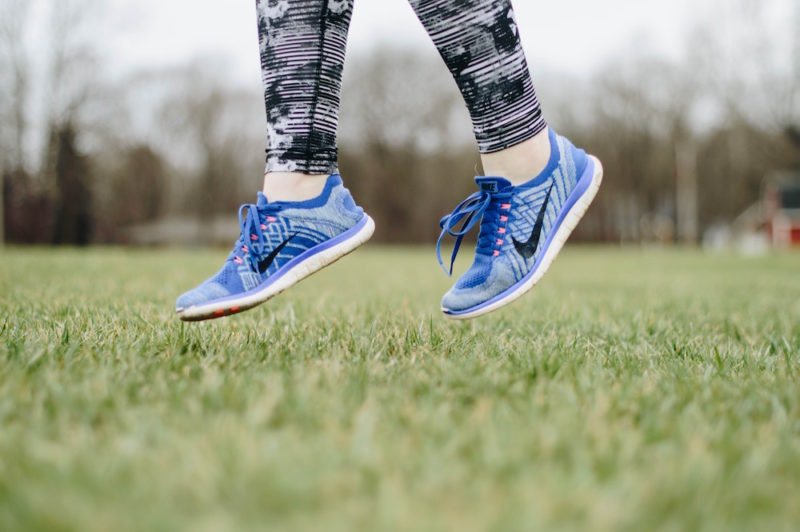 As I mentioned in last week’s post, my recent house move was a bit arduous, both mentally and physically. On the physical front, not only did I have a significant dip in my normal physical activity routine, but I had intense bouts (in some cases hours-long) of movements that are not normal to me, like hauling around boxes and furniture. Think heavy loads and often awkward body positions.
As I mentioned in last week’s post, my recent house move was a bit arduous, both mentally and physically. On the physical front, not only did I have a significant dip in my normal physical activity routine, but I had intense bouts (in some cases hours-long) of movements that are not normal to me, like hauling around boxes and furniture. Think heavy loads and often awkward body positions.
In the weeks before our move, my basement weight room was out of commission, as it was the only “open” area in the basement area. Accordingly, it became the staging area for sorting through all of the crap stuff we’d accumulated there in the last 13 years. The floor of of my home office was crowded by boxes, disrupting my yoga schedule (I used our big computer monitor to view my yoga DVDs). Long weekend walks also became sporadic, sacrificed to the pressing need to keep packing, packing, packing.
Even though I was averaging three miles of walking on workdays (to and from light rail, and a short walk at lunch), I could feel myself becoming deconditioned, and I didn’t like it. I actively practiced self-compassion and patience (“This too shall pass”).
This is Going To Hurt A Little
Flash forward to our first post-move walk…let’s—just say it wasn’t pretty. It wasn’t a long walk, but it felt hard. Really hard. And a few days later, when I resumed yoga…I felt like I was broken. I could have easily descended into fear, frustration, anger, discouragement, or any number of negative emotions. Fortunately, I had the presence of mind to tell myself, “Well, of course this feels harder than it once did. That’s completely normal, given the current circumstances. The good news is that you can change your circumstances.”
And so I did. It took about a week, but my stamina on walks returned, and yoga went from “OHMYGODMYQUADSWHYDOTHEYHURTLIKETHIS!!!!!!!” to “Oh…my quads!” In other words, normal.
Postive Programming
It reminded me of all the times a new patient would tell me they needed to lose weight because they got winded on walks or when climbing stairs. When I asked them, “How often have you been walking? How often do you take the stairs?” the answer was almost always “rarely” or “almost never.” When we don’t regularly engage in physical activity—whether general activity or a specific activity, such as walking up hills, climbing stairs, stretching or picking up heavy objects—then of course that activity is going to feel difficult when we do happen to engage in it. It’s about physical conditioning, not body weight.
Two traps I consciously sidestepped were the “all or nothing” trap (i.e., “I’ve fallen off the exercise wagon, so now I’m doomed/I’m a failure/I might as well never exercise again”) and the “too much, too soon” trap. Like it or not, I had become somewhat deconditioned, so resuming my normal routine in one fell swoop could have sidelined me further, with a raging case of delayed-onset-muscle-soreness at best, actual injury at worst. Instead, I exercised intuitively, listening to my body’s signals to guide me to the sweet spot—feeling challenged without feeling that I’d overdone it. I also listened for clues that I was in fact was becoming re-conditioned. Like when my quads said “ahhh” instead of “ouch” during yoga.
Just Start Again
A metaphor I had started using a lot with my patients (when I was still seeing patients) was that habit change is like meditation. When you meditate, your mind will frequently wander, despite your attempts to keep your attention on your breath. That’s totally normal, because that’s what minds do. The key is to bring your attention back to the breath every time you notice it’s wandered. You start again. And again. And again. That’s success.
Similarly, when you are trying to form, or maintain, a habit—of exercising, or getting to bed on time, or eating enough vegetables, or anything else—you will slip at some point. When that happens, you just start again. And again. And again. That’s success. Eventually, you will get to the point where slips fewer and further between, and when you do slip you’ll find yourself able to get restarted more quickly. And then you’ll say, “ahhhh.”






